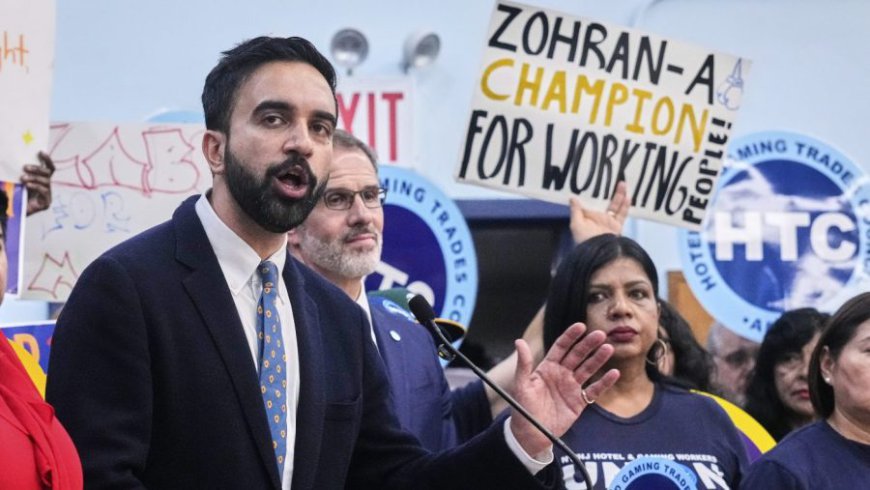The exodus from New York City will only get worse under Mamdani
Much has been written about America’s largest city edging closer to electing a socialist mayor. Zohran Mamdani recently won the Democratic primary, which is likely enough to secure the mayoralty of New York City. He still has to get through a general election that includes incumbent Eric Adams, now running as an independent. But Mamdani...

Much has been written about America’s largest city edging closer to electing a socialist mayor.
Zohran Mamdani recently won the Democratic primary, which is likely enough to secure the mayoralty of New York City. He still has to get through a general election that includes incumbent Eric Adams, now running as an independent. But Mamdani is in a strong position.
How did Mamdani rise to the top of the ticket over Andrew Cuomo, a well-known but scandal-plagued former governor? He ran a calculated campaign focused on New York City’s affordability crisis. He’s promised free bus rides, city-run grocery stores, a $30 minimum wage, and rent freezes — all to be funded by the, in Mamdani’s eyes, evil billionaires of the city.
So have at it. If you’re old enough to remember New York City before the 1990s, you’ve seen what can happen under dysfunctional leadership in one of the world’s most important cities.
But if Mamdani is indeed successful in implementing his policy ideas, expect one noticeable trend to continue and likely grow: the number of people leaving New York for greener pastures. While we may criticize bad ideas or bad policy, that’s the beauty of the American federalist system.
We often look to Washington for answers, but that’s the wrong approach. State and local governments retain significant control over many aspects of our daily lives, including education, criminal justice, infrastructure, elections, and taxation. This decentralization creates a unique environment in which cities and states are free to innovate and compete.
One of the most powerful aspects of federalism is that it allows states to serve as “laboratories of democracy,” a phrase popularized by U.S. Supreme Court Justice Louis Brandeis. States can experiment with new laws, policies and regulations tailored to the specific needs and preferences of their populations. When those policies are effective, they may be adopted by other states, and occasionally even by the federal government. When they fail, the impact is limited to that one jurisdiction.
This system naturally fosters healthy competition among the states. Policymakers are incentivized to make their states more attractive for residents, workers, and businesses.
That often means pursuing lower taxes, fewer regulations, safer communities, and better educational options. Much of the South, including Georgia, has benefited by adopting policies aimed at growing their economies, cutting red tape and reducing taxes. In doing so, they’ve attracted new residents and companies fleeing high-tax, high-regulation states like California, Illinois and, yes, New York.
Partisans may put out rankings on who is the best or worst, but there is no more measurable sign of success (or failure) than people voting with their feet.
This competition is real. States vie for jobs, investment, and talent. They actively court small and major corporations, touting their state’s tax climate, workforce, and quality of life. When a company relocates its U.S. headquarters, or a family moves for a lower cost of living, that’s federalism in action.
Federalism also serves as a check on the national government. When Washington overreaches or fails to act, states can step in. During COVID-19, for example, states made widely varying decisions about lockdowns, mandates, and school closures. That diversity of approaches allowed for comparisons, corrections, and accountability — and, it turns out, it was one of the biggest drivers of out-migration from states like New York over the past five years.
Ultimately, federalism ensures that no single ideology or governing model dominates the entire country. It gives Americans the freedom to choose where they live based not just on geography or climate, but on values, opportunity, and public policy. This freedom of movement and choice reinforces liberty and drives continual improvement.
In the last five years of available Census information, 78,000 residents have moved from New York to Georgia. That wasn’t because numerous families happened to break down on Interstate 95. It was intentional.
If Mamdani is successful at putting socialism into action in New York City, expect those numbers to continue growing.
Brett Kittredge is the director of marketing and communications at the Georgia Public Policy Foundation and a member of State Policy Network.
What's Your Reaction?
























